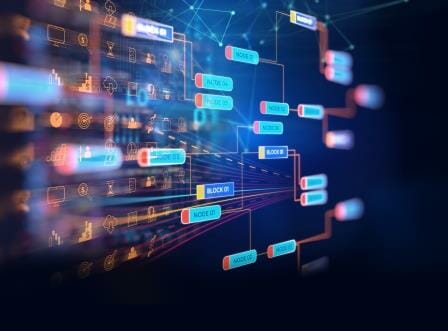António Guterres believes that blockchains can help sustainable development. The organization sees the potential for transparency of decentralized networks.
United Nations (UN) Secretary-General António Guterres, from Portugal, gave his support to distributed ledger technology (DLT), or blockchain, saying that it is needed to help accelerate and achieve the Sustainable Development Goals (SDGs).
The official believes that this technology, which is original from Bitcoin as a digital system, could be key to help eradicate poverty and hunger, ensure good health and well-being, have quality an education, achieve gender equality and produce affordable and clean energy, among others, if it is well applied.
Guterres stated that, for the United Nations to better fulfill their mandate in the digital age, they need to adopt technologies like blockchain that can help them accelerate the achievement of those Sustainable Development Goals.
It should be noted that these are a list of 17 points that the United Nations adopted in 2015 as an action plan to help people and the planet achieve greater levels of prosperity, quality of life and promote sustainable economic growth, among other things.
The Secretary-General of the UN, one of the most important organizations at the global level, sees all the potential that blockchain technology has for human development. This is a clear signal that decentralized networks offer usefulness, not only in the financial aspect as in the case of cryptocurrencies but also in the social, human rights and environmental sectors.
Blockchain as a Global Trend
The potential approach of the United Nations to blockchains is in line with the global trend of other organizations and countries that have already announced their development or are already working on them. The most recent case with the greatest news impact was the announcement made by the president of China, Xi Jinping, who is betting heavily on this technology by saying that the Asian country should take the lead in this area, which is in full process of expansion.
A similar point of view, although oriented to the social sector, has been mentioned by the European Commission. This organization considers that blockchains have the potential to benefit society in multiple areas, which range from food distribution to the care of refugees in Europe.
In the words of Guterres, decentralized networks of this kind could gain more exposure and arouse greater interest among those who still only relate them to cryptocurrencies like Bitcoin. In Latin America, many projects are based on blockchains. This is the recent case of Brazil, which will activate a register of foreign trade with the member countries of the Common Market of the South or “Mercosur” (Argentina, Paraguay, and Uruguay) for greater transparency in their exchanges.
Another recent case is that of Argentina, where volunteers who participate with their social work in a community kitchen in Buenos Aires will be rewarded with a token.
DLT is a technology that allows two or more people to conduct any type of transaction without the intervention of intermediaries or trusted third parties. In other words, participants use the Internet through an encrypted platform to send information from one person to another.
By Willmen Blanco











